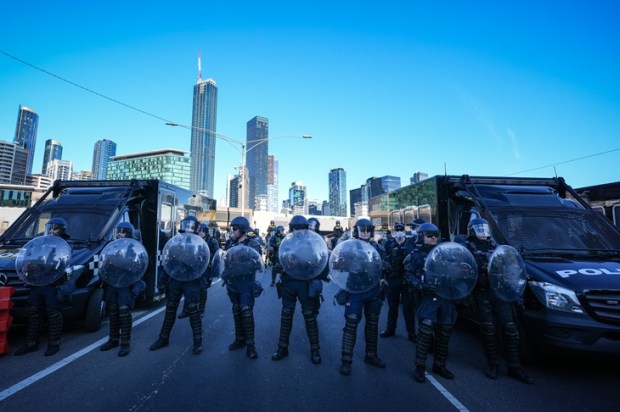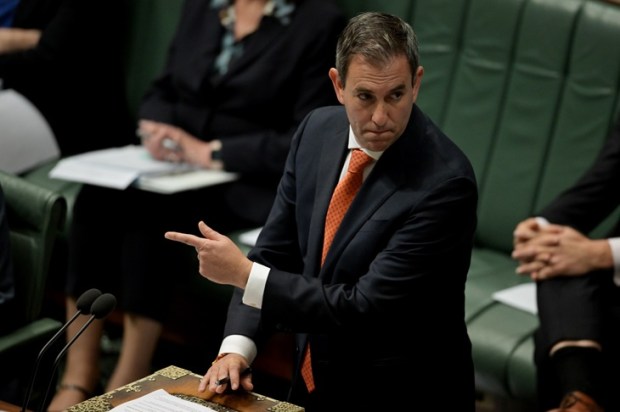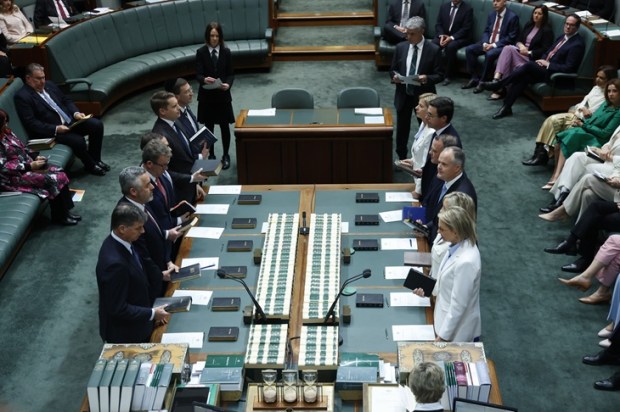The 19th Century Prince of Sicily said in the wonderful novel The Leopard, ‘If we want things to stay as they are, things will have to change.’
As if putting the Prince’s words into practice, Europe invented the idea of ‘progress’. Progress was a strange thing for a world of binding tradition; a world of foot binding.
In 19th Century Britain, the Tories were the party of stability and change, the Whigs, change and stability. Conflict between these two approaches were the means of achieving progress.
There were of course many ‘splits’ and much chaos. Politics is rarely neat and tidy.
The Leopard, incidentally, has one of the most evocative love and romance episodes in all of literature, capturing a nearly perfect moment just as it is about to disappear.
Which is sort of the point of the novel, in the same way that Cabaret was a tribute to the doomed hedonism of the Weimar Republic (1918-33). Weimar was swept away by the young blond boy in traditional German costume singing a song of ringing nationhood, and people like him:
‘The sun on the meadow is summery warm.
The stag in the forest runs free.
But gather together to greet the storm.
Tomorrow belongs to me…’
The tragic death of liberal Germanic Austria was described by Stephan Zweig in The World of Yesterday:
‘The invasion of brutality into politics thus chalked up its first success. All the underground cracks and crevices between the classes and races, which the age of conciliation had so labouriously patched up, broke open once again, and widened into abysses and chasms … the war of all against all began in Austria.’
Not much of ‘His Majesty’s Loyal Opposition’ in those politics. It became much worse.
Australia, however, has little or no popular alternatives to liberalism.
Instead Tories and Whigs debate (all right, the Liberal/National Party Coalition and the Australian Labor Party debate, and others). Progress results. Sometimes.
Perhaps parliamentary debate is assertion followed by flat contradiction, followed by abuse, as the late Senator David Hamer once said.
There is also a real frustration in liberal electoral politics. How is Australia to lift its productivity malaise? As sure as night succeeds day any measures a government proposes may be opposed by the other side if there is some pain involved, and there is nearly always a lot of pain involved. The recent NDIS reforms may be a rare exception.
Nevertheless Australian parliaments negotiated war and peace and produced what is comparatively a stable democracy and a very high standard of living for ordinary people.
This is a real achievement on any measure.
Another part of our constitution, the court system, functions well. The High Court recognises free speech, responsible democratic government, and one person one vote, as central to the Constitution (eg. ACTV, Lange, Nationwide News). But it also defers to Parliament as to how to implement this.
As the retired US Supreme Court justice Stephen Breyer said, the Court itself will not attempt to run the military defence of the US. The court defers to government. This does not mean that the court does not have a role.
Courts here and overseas do not seem to defer to government on immigration matters. The majority in the High Court Love Case found that Aboriginality prevented a potential deportee from being an ‘alien’ liable to deportation: ‘Despite the circumstance of birth in another country, an Aboriginal Australian cannot be said to belong to another place.’ The minority judgements included opposition to ‘judicial creation of any race-based constitutional distinction’.
In many first world nations there is therefore great dissatisfaction with ‘illegal’ immigration and the inability of government to stop it.
The controversy regarding ‘marriage equality’ was resolved in Australia politically, while in the US it was by court decision. Many would think the Australian practice arguably better; in the US judges were divided in their opinions and showed that a court could reach quite different conclusions, as they could with abortion.
But the US had dilemmas to resolve that Australians did not and has a Bill of Rights while Australia does not.
Australia did not fight a civil war (1861-65) over slavery; it never had slavery. It did have forms of bonded labour beginning with convicts. But the US legacy to be overcome led the court to extreme remedies such as ‘bussing’ and ‘affirmative action’. The Supreme Court has now decided that the time for such measures is over. But there was an historical context to them.
Nor should we avoid discussing Australia’s own unique weaknesses. Litigation over environmental issues with the aim to defeat all mining, not to allow it with appropriate protections. Our housing crisis. Closing the gap, and the shared responsibility of government and Aboriginal people. Government overspending. Regressive taxation policies.
The restrictions on celebration of Australia Day, despite Australia’s manifest achievements of a first world economy, democracy, and a working system of education and health, without a civil war or interruption.
If Australia cannot celebrate, what country in the world can? Has anyone looked around them?
What seems at times to be an almost entirely negative view of our history.
The BBC has a wonderful history of the Anglo-Saxon kingdoms from 409-1066, narrated by Ian Hislop. The Anglo-Saxon kingdoms were established, behaved like The Game of Thrones (which was based on them!), then Alfred the Great unified ‘Angle-land’ under the House of Wessex in Winchester. When William the Conqueror arrived in 1066 there were more wars. Good times.
An essential story of British history – how England began. It could have been entirely negative: how people chopped each other up with weapons. But it wasn’t. It dealt with all aspects, the church, wealth, and so on.
The US, along with many pipe bands marching with flint lock rifles, has excellent TV series of the debates that led to the American revolution, and the beginning of an astonishingly dynamic country.
In Australia our broadcasters don’t do nation-building.
But Australia was built. It exists. Millions of refugees and economic migrants would move to Australia immediately if only they could, because it functions remarkably well, comparatively.
But there is little to nothing in the Australian popular market and not much in the academic which describes our nation-building. Certainly nothing involving enthusiasm.
So here is a challenge to our broadcasters.
How about a history of how democracy began in Australia, how the first world economy developed, how the safety net of health and education developed?
Make it interesting. And not just an apology.
Even if it is modestly ‘triumphalist.’
The Hon. Reginald Hamilton, former Deputy President, Fair Work Commission, Adjunct Professor CQU

























